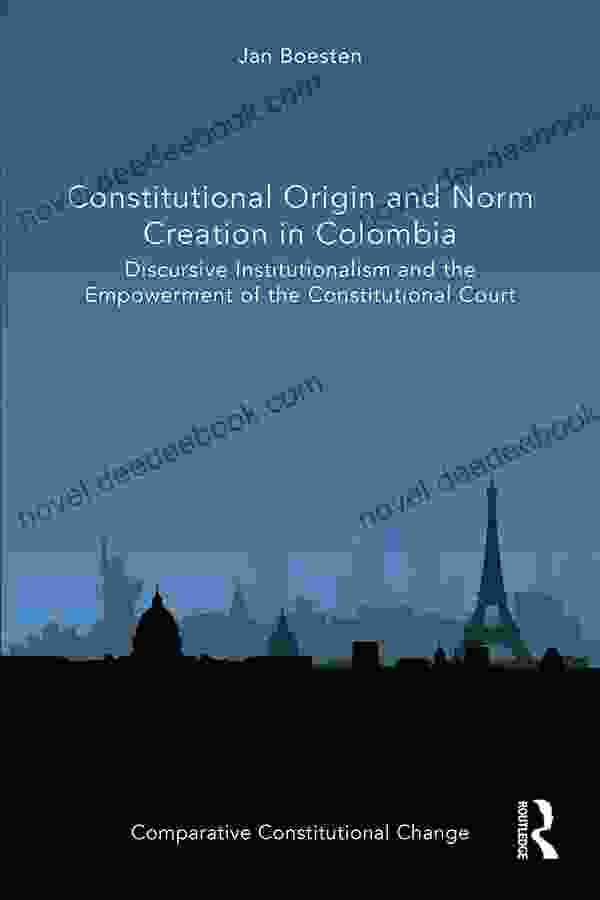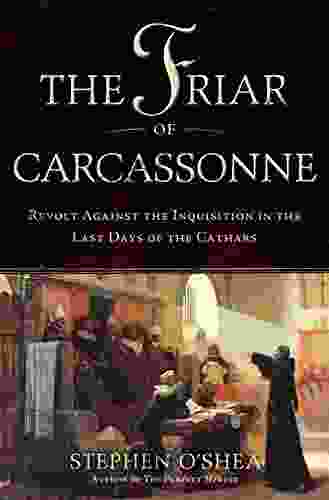Discursive Institutionalism and the Empowerment of the Constitutional Court: A Theoretical and Empirical Examination

Abstract
This article examines the relationship between discursive institutionalism and the empowerment of the constitutional court. It argues that discursive institutionalism provides a useful framework for understanding how constitutional courts can use discourse to shape the political and legal landscape. The article also presents an empirical analysis of the Colombian Constitutional Court, which has been one of the most influential constitutional courts in Latin America.
Constitutional courts are increasingly playing a central role in the political and legal systems of many countries. They are responsible for interpreting the constitution and ensuring that government actions are in accordance with it. In recent years, constitutional courts have become more assertive in their rulings, and they have been willing to strike down laws and government actions that they believe to be unconstitutional.
This new assertiveness on the part of constitutional courts has led to a debate about the role of these courts in a democratic society. Some critics argue that constitutional courts are becoming too powerful and that they are undermining the authority of elected officials. Others argue that constitutional courts are necessary to protect individual rights and to ensure that the government is accountable to the people.
This article examines the relationship between discursive institutionalism and the empowerment of the constitutional court. Discursive institutionalism is a theoretical approach that emphasizes the role of discourse in shaping political and legal institutions. It argues that institutions are not simply neutral structures, but rather that they are shaped by the discourses that circulate around them.
The article argues that discursive institutionalism provides a useful framework for understanding how constitutional courts can use discourse to shape the political and legal landscape. It also presents an empirical analysis of the Colombian Constitutional Court, which has been one of the most influential constitutional courts in Latin America.
Discursive Institutionalism
Discursive institutionalism is a theoretical approach that emphasizes the role of discourse in shaping political and legal institutions. It argues that institutions are not simply neutral structures, but rather that they are shaped by the discourses that circulate around them.
Discourse is a form of communication that creates meaning. It can be used to persuade, to inform, and to shape people's understanding of the world. Discursive institutionalism argues that discourse plays a central role in the formation and maintenance of political and legal institutions.
There are a number of different ways in which discourse can shape institutions. First, discourse can create new institutions. For example, the discourse of human rights has led to the creation of a number of international institutions that protect human rights.
Second, discourse can change the meaning of institutions. For example, the discourse of democracy has changed the way that people think about the role of government. In the past, government was seen as a necessary evil, but today it is seen as a positive force that can promote the well-being of its citizens.
Third, discourse can legitimise institutions. For example, the discourse of the rule of law has legitimised the authority of courts. People believe that courts are legitimate because they believe that the rule of law is a good thing.
Fourth, discourse can empower institutions. For example, the discourse of judicial independence has empowered constitutional courts. People believe that constitutional courts are independent because they believe that the rule of law is a good thing.
The Empowerment of the Constitutional Court
Discursive institutionalism provides a useful framework for understanding how constitutional courts can use discourse to shape the political and legal landscape. Constitutional courts can use discourse to create new rights, to change the meaning of existing rights, to legitimise their authority, and to empower themselves.
For example, the Colombian Constitutional Court has used discourse to create new rights. In 1997, the Court ruled that the right to a healthy environment is a fundamental right. This ruling was based on the Court's interpretation of the Colombian Constitution, which states that everyone has the right to a healthy and ecologically balanced environment.
The Court has also used discourse to change the meaning of existing rights. For example, in 2002, the Court ruled that the right to freedom of expression includes the right to criticise the government. This ruling was based on the Court's interpretation of the Colombian Constitution, which states that everyone has the right to freedom of thought and expression.
The Court has also used discourse to legitimise its authority. For example, in 1995, the Court ruled that it has the power to review the constitutionality of laws passed by the Colombian Congress. This ruling was based on the Court's interpretation of the Colombian Constitution, which states that the Court is the guardian of the Constitution.
Finally, the Court has used discourse to empower itself. For example, in 1997, the Court ruled that it has the power to issue binding rulings on the government. This ruling was based on the Court's interpretation of the Colombian Constitution, which states that the Court's decisions are binding on all public authorities.
Discursive institutionalism provides a useful framework for understanding how constitutional courts can use discourse to shape the political and legal landscape. The Colombian Constitutional Court is a good example of how a constitutional court can use discourse to empower itself and to protect individual rights.
The Court's rulings have had a profound impact on Colombian society. They have helped to create a more just and equitable society, and they have strengthened the rule of law. The Court's work is a model for other constitutional courts around the world.
Do you want to contribute by writing guest posts on this blog?
Please contact us and send us a resume of previous articles that you have written.
 Book
Book Novel
Novel Page
Page Chapter
Chapter Text
Text Paperback
Paperback Magazine
Magazine Sentence
Sentence Bookmark
Bookmark Glossary
Glossary Foreword
Foreword Annotation
Annotation Footnote
Footnote Scroll
Scroll Codex
Codex Autobiography
Autobiography Thesaurus
Thesaurus Narrator
Narrator Character
Character Librarian
Librarian Catalog
Catalog Card Catalog
Card Catalog Borrowing
Borrowing Archives
Archives Periodicals
Periodicals Study
Study Research
Research Lending
Lending Reserve
Reserve Academic
Academic Journals
Journals Rare Books
Rare Books Special Collections
Special Collections Interlibrary
Interlibrary Literacy
Literacy Study Group
Study Group Thesis
Thesis Storytelling
Storytelling Awards
Awards Textbooks
Textbooks Michael St Pierre
Michael St Pierre Michael Signer
Michael Signer Ian Hughes
Ian Hughes Tech Reviewer
Tech Reviewer Evie Mitchell
Evie Mitchell Mary Katharine Ham
Mary Katharine Ham Michael Nest
Michael Nest Philip Kotler
Philip Kotler Linda Glaser
Linda Glaser Johann Vidal
Johann Vidal Screech House
Screech House Ron Adkison
Ron Adkison Contentious Otter
Contentious Otter H Beam Piper
H Beam Piper Heather Newton
Heather Newton Ken Robinson
Ken Robinson Sibylle Scheipers
Sibylle Scheipers Jonathan Shandell
Jonathan Shandell Georgios Kourogiorgas
Georgios Kourogiorgas Khali Raymond
Khali Raymond
Light bulbAdvertise smarter! Our strategic ad space ensures maximum exposure. Reserve your spot today!

 Frank ButlerDisney Favorites Songbook Play Today Volume 392: A Comprehensive Guide to the...
Frank ButlerDisney Favorites Songbook Play Today Volume 392: A Comprehensive Guide to the...
 Hamilton BellThe Ultimate Guide to Training Your Boston Terrier: A Step-by-Step Approach...
Hamilton BellThe Ultimate Guide to Training Your Boston Terrier: A Step-by-Step Approach... Elmer PowellFollow ·4.8k
Elmer PowellFollow ·4.8k Carlos DrummondFollow ·7.3k
Carlos DrummondFollow ·7.3k Julian PowellFollow ·19.7k
Julian PowellFollow ·19.7k Harold BlairFollow ·19.7k
Harold BlairFollow ·19.7k Mario SimmonsFollow ·9.6k
Mario SimmonsFollow ·9.6k Branson CarterFollow ·16.4k
Branson CarterFollow ·16.4k Joel MitchellFollow ·12.9k
Joel MitchellFollow ·12.9k Neil GaimanFollow ·14.1k
Neil GaimanFollow ·14.1k

 Bryce Foster
Bryce FosterPerforming Asian American Women On Screen And Scene
The representation of Asian American women...

 Frank Mitchell
Frank MitchellGirl Can Draw: A Spirited and Inspiring Play by Joe...
Prologue In the realm of...

 Marc Foster
Marc FosterThe Epic Story of Race and the American Media: A Journey...
From the Shadows of Slavery to the Dawn of...

 Demetrius Carter
Demetrius CarterThe Ultimate Guide to Hiking West Virginia: Discover the...
West Virginia, often referred to as...

 Isaiah Price
Isaiah PriceThe Ten Step Guide on How to Become Famous: Unleash Your...
In the captivating world of entertainment...







